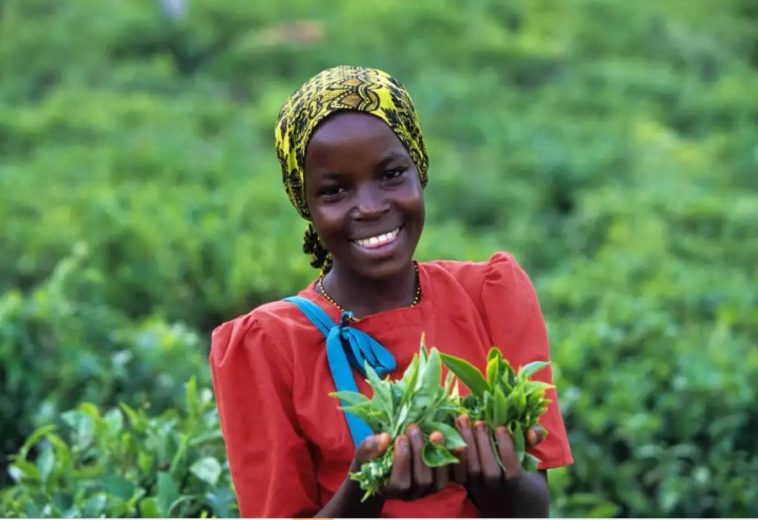Africa is a developing continent with a promising prospect that endears it to foreign powers for strategic relationships.
Since the independence of most African countries, foreign powers like the European Union, China, the USA, the UK, and most recently Russia have remained relevant, directly and indirectly supporting various initiatives on the continent.
One of those foreign powers whose interest in Africa has been rekindled recently is Russia, whose relationship with Africa will form the basis of this writing that is aimed at giving an appraisal of the Russia-Africa alliance with particular reference to the business, political, and diplomatic relationships.
The Russia-Africa relationship dates back to the days of the defunct Union of Soviet Socialist Republics (USSR), which was dissolved in 1991. After the dissolution of the USSR, the relationship declined as Russia began to grow its economy.
However, over the past two decades, Russia has made efforts to revive its interest in Africa and is making headway. Notable among such efforts is the coming on board of the Russia-Africa Summit, which is targeted at strengthening mutual interests between both parties.
Economic Relations
In the area of business, Russia is an important trade partner for African nations due to its essential food commodities. Russia imports mostly edible products and minerals from Africa, while Africa imports mainly food commodities from Russia and bits of industrial goods. The importance of the relationship is felt in the quantity of food commodities Africa imports from Russia, as data has it that in 2022, Russia exported 11.5 million metric tonnes of grain to Africa, and almost 10 million metric tonnes more were delivered in the first half of 2023.
It is on record that Africa depends on Russia for 30 percent of its grain supplies, and about 95% of the grain supplies are wheat, with close to 80 percent of the wheat exports going to North African countries and others to Nigeria, Ethiopia, Sudan, and South Africa.
Though tilted more in favour of Russia, trade between Africa and Russia has continued to increase over the years despite several international sanctions against Russia and disruptions from other global issues. For instance, the volume of trade between Russia and African countries rose by 22% in 2021 to $17.7 billion; it also increased marginally to $18 billion in 2022; and it has increased by almost 35% in the first half of 2023, according to Russian President Vladimir Putin.
But despite the increasing trade between Russia and Africa, Russia remains a minor player in terms of investment in Africa( because, according to the Africa Centre, foreign direct investment, FDI, from Russia to Africa is less than 1% of total FDI into Africa.
One important thing to note here is that about 70% of Russia’s trade with Africa is concentrated in the four nations of Algeria, Egypt, Morocco, and South Africa. As of 2022, Russia’s leading trade partner on the continent was Egypt. The value of goods and services exchanged with Egypt accounted for roughly 27 percent of the total trade volume between Russia and African countries.
Algeria’s business interests are in energy and agriculture, and data from Comtrade shows that in Africa, Algeria stands as one of Russia’s biggest trading partners, with trade between the two amounting to $3 billion in 2022.
Political Relations
As much as Russia has an economic pact with Africa, more of its relations in recent times seem to be more political, and recent actions and inactions by African countries in taking decisive steps in relating with Russia against all odds are a pointer to that fact.
In countries like the Central African Republic, Mozambique, Mali, Sudan, and Burkina Faso, the political support of Russia is strong, especially in terms of military support, which has incurred mixed reactions within and outside of the continent.
While the support for African countries politically has increased from Russia, it calls for caution given the various sanctions against Russia by other Western powers and international bodies due to the ongoing Russian-Ukraine war.
Diplomatic Relations
When it comes to diplomacy, Africa seems to be at the forefront of Russia’s foreign policy, and with the visit of Russian President Vladimir Putin to Egypt in 2005 and subsequently to Algeria, South Africa, Morocco, and Libya, Russia’s diplomatic ties with Africa have improved steadily.
Russia currently has existing diplomatic relations with all 54 African countries and has around 40 embassies operating in African countries, while over 30 African nations also have functioning embassies in the Russian capital, Moscow. The deepening ties of Russia on the continent are also being felt in regional and continental bodies, as Russia has representatives in the African Union, the Southern African Development Community, the Economic Community of West African States, and the East African Community, among others, with the main agenda of protecting the growing interests of both parties.
Also, the opportunities presented by the Russia-Africa Summit since its inception in 2019 have taken the relationship between both parties a notch higher. Take, for instance, South Africa, whose bilateral ties with Russia are waxing stronger.
Russia and South Africa have several ongoing cooperations under the framework of international forums, while the two countries also belong to the BRICS group, which has helped develop their cooperation.
One major area in which Russia has displayed its full diplomatic ties with the continent is military support. Russia sees Africa as a potential market for its military weapons and has established military ties with some African countries, which have seen it sell arms to several nations in Africa like Sudan, Egypt, and others while at the same time providing military training on the use of the arms, as done in Mozambique and the Central African Republic, among others.
Data has it that Russia has overthrown China in the sales of arms to Africa, and the factors pushing this are the fact that arms purchases from Russia come in cheaper than those of other Western powers and the lack of human rights and governance preconditions from Russia to Africa, unlike other Western allies who give stringent human rights and governance terms.
While this military diplomacy has been handy for the various African countries in question at the given times, there are, however, some growing concerns about the timing of Russia’s military support in those African nations given that most of the countries in question have had various governance issues.
No doubt, Russia’s alliance with Africa has had a significant impact on the continent and helped Africa find her voice among the community of nations and especially with other Western powers. All in all, the present state of Russia-Africa relations can be described as one with huge prospects capable of enriching both parties.
It is, however, of utmost importance that Africa see beyond the silver lining and not just accept every opportunity or deal in their partnership but rather analyse its impacts on the populace, weigh the pros and cons, and be sure it is in the general interest of all so that while Russia befriends Africa as it defends itself against western powers, it doesn’t leave Africa as the “grass” that bears the brunt in the long run.


